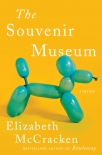An American Tragedy, Theodore Dreiser [best business books of all time txt] 📗

- Author: Theodore Dreiser
Book online «An American Tragedy, Theodore Dreiser [best business books of all time txt] 📗». Author Theodore Dreiser
“I don’t know,” he said, a little weakly, after a time. “It must have been in the Renfrew House rack.”
“Oh, must it? And if I bring two witnesses here to swear that on July third—three days before you left Lycurgus for Fonda—you were seen by them to enter the Lycurgus House and take four or five folders from the rack there, will you still say that it ‘musta been in the rack at the Renfrew House’ on July sixth?” As he said this, Mason paused and looked triumphantly about as much as to say: There, answer that if you can! and Clyde, shaken and stiff and breathless for the time being was compelled to wait at least fifteen seconds before he was able sufficiently to control his nerves and voice in order to reply: “Well, it musta been. I didn’t get it in Lycurgus.”
“Very good. But in the meantime we’ll just let these gentlemen here look at this,” and he now turned the folder over to the foreman of the jury, who in turn passed it to the juryman next to him, and so on, the while a distinct whisper and buzz passed over the entire courtroom.
And when they had concluded—and much to the surprise of the audience, which was expecting more and more attacks and exposures, almost without cessation—Mason turned and explained: “That’s all.” And at once many of the spectators in the room beginning to whisper: “Trapped! Trapped!” And Justice Oberwaltzer at once announcing that because of the lateness of the hour, and in the face of a number of additional witnesses for the defense, as well as a few in rebuttal for the prosecution, he would prefer it if the work for the day ended here. And both Belknap and Mason gladly agreeing. And Clyde—the doors of the courtroom being stoutly locked until he should be in his cell across the way—being descended upon by Kraut and Sissel and by them led through and down the very door and stairs which for days he had been looking at and pondering about. And once he was gone, Belknap and Jephson looking at each other but not saying anything until once more safely locked in their own office, when Belknap began with: “… not carried off with enough of an air. The best possible defense but not enough courage. It just isn’t in him, that’s all.” And Jephson, flinging himself heavily into a chair, his overcoat and hat still on, and saying: “No, that’s the real trouble, no doubt. It musta been that he really did kill her. But I suppose we can’t give up the ship now. He did almost better than I expected, at that.” And Belknap adding: “Well, I’ll do my final best and damnedest in my summing up, and that’s all I can do.” And Jephson replying, a little wearily: “That’s right, Alvin, it’s mostly up to you now, I’m sorry. But in the meantime, I think I’ll go around to the jail and try and hearten ’im up a bit. It won’t do to let him look too winged or lame tomorrow. He has to sit up and make the jury feel that he, himself, feels that he isn’t guilty whatever they think.” And rising he shoved his hands in the side pockets of his long coat and proceeded through the winter’s dark and cold of the dreary town to see Clyde.
XXVIThe remainder of the trial consisted of the testimony of eleven witnesses—four for Mason and seven for Clyde. One of the latter—a Dr. A. K. Sword, of Rehobeth—chancing to be at Big Bittern on the day that Roberta’s body was returned to the boathouse, now declared that he had seen and examined it there and that the wounds, as they appeared then, did not seem to him as other than such as might have been delivered by such a blow as Clyde admitted to having struck accidentally, and that unquestionably Miss Alden had been drowned while conscious—and not unconscious, as the state would have the jury believe—a result which led Mason into an inquiry concerning the gentleman’s medical history, which, alas, was not as impressive as it might have been. He had been graduated from a second-rate medical school in Oklahoma and had practised in a small town ever since. In addition to him—and entirely apart from the crime with which Clyde was charged—there was Samuel Yearsley, one of the farmers from around Gun Lodge, who, driving over the road which Roberta’s body had traveled in being removed from Big Bittern to Gun Lodge, now earnestly swore that the road, as he had noticed in driving over it that same morning, was quite rough—making it possible for Belknap, who was examining him, to indicate that this was at least an approximate cause of the extra-severity of the wounds upon Roberta’s head and face. This bit of testimony was later contradicted, however, by a rival witness for Mason—the driver for Lutz Brothers, no less, who as earnestly swore that he found no ruts or rough places whatsoever in the road. And again there were Liggett and Whiggam to say that in so far as they had been able to note or determine, Clyde’s conduct in connection with his technical efforts for Griffiths & Company had been attentive, faithful and valuable. They had seen no official harm in him. And then several other minor witnesses





Comments (0)